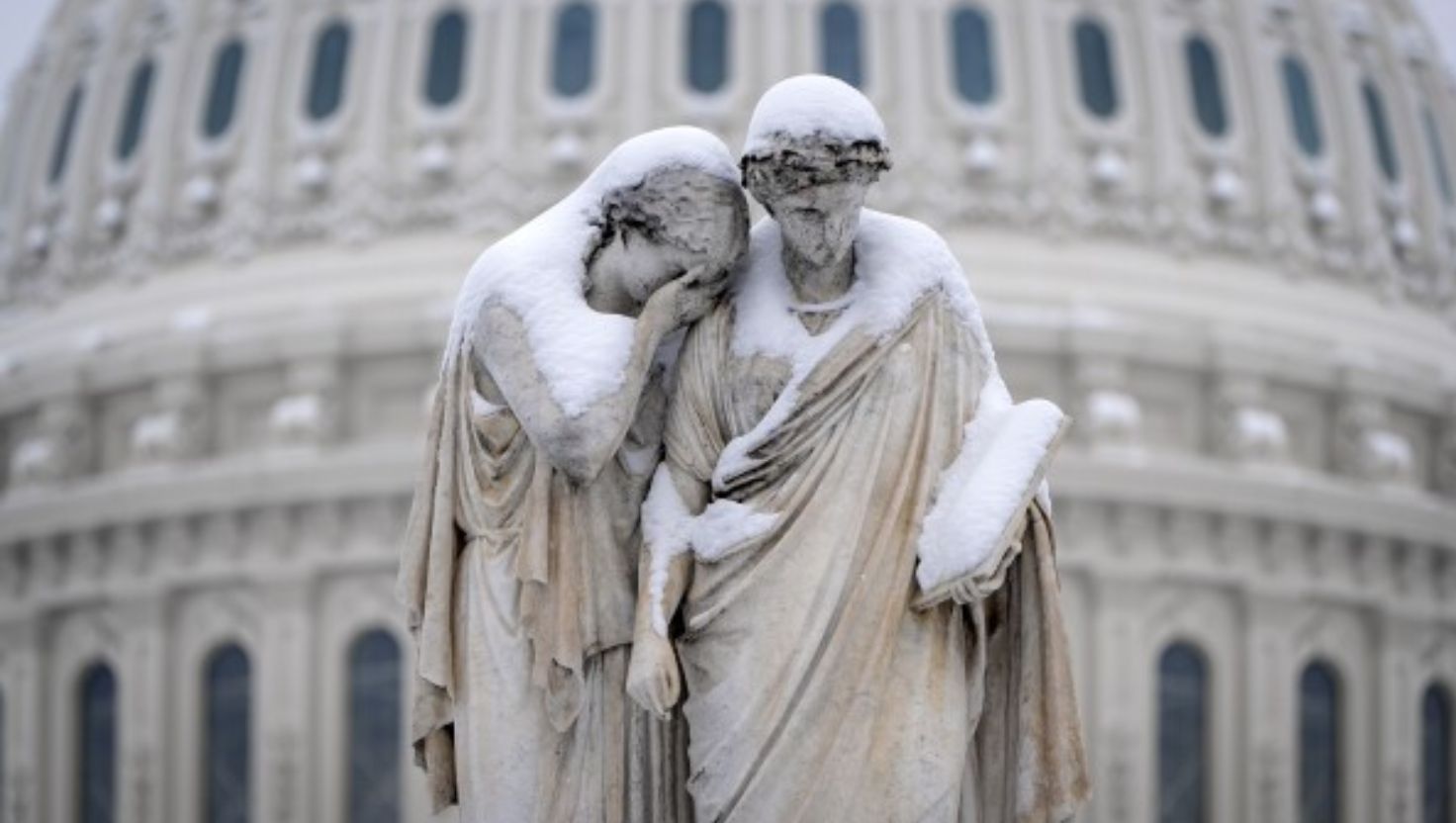The coldest burst of Arctic air this season is coming to put an icy exclamation point on America’s winter of repeated polar vortex invasions, meteorologists warn. And it’ll stay frozen there all next week.
Different weather forces in the Arctic are combining to push the chilly air that usually stays near the North Pole not just into the United States, but also Europe, several meteorologists tell The Associated Press.
This will be the 10th time this winter that the polar vortex, which keeps the coldest of Arctic air penned in at the top of the world, stretches like a rubber band to send some of that big chill south, said Judah Cohen, seasonal forecast director at the private firm Atmospheric and Environmental Research. In a normal winter, it happens maybe two or three times.
This winter, with record snow in New Orleans and drought and destructive wildfires in Southern California, has not been normal.
The latest projected cold outbreak should first hit the northern Rockies and northern Plains on Saturday and then stick around all next week. The cold will likely concentrate east of the Rockies, with only the far American west and central and southern Florida exempted, meteorologists said. On Tuesday, expect the Lower 48 states to have an average low of 16.6 degrees Fahrenheit (minus 8.6. Celsius) and then plunge to 14 degrees (minus 10. Celsius)
Meteorologists expect strong winds to make the cold feel even worse. Every U.S. state but Hawaii, California and Florida have some or all parts forecast to have a good chance of windchills of 20 degrees or below sometime next week, the National Weather Service predicted.
Kansas, Nebraska, Missouri and Iowa will have “probably the most impressive” cold, with temperatures as much as 35 degrees (19 degrees Celsius)
Obviously, this isn’t the first polar vortex episode of the winter, but it looks to be the most severe.
A stretched polar vortex like this one happens lower in the atmosphere and is different than when the polar vortex has sudden warming, weakens, and all the cold air escapes south and out of the poles, Cohen said.

